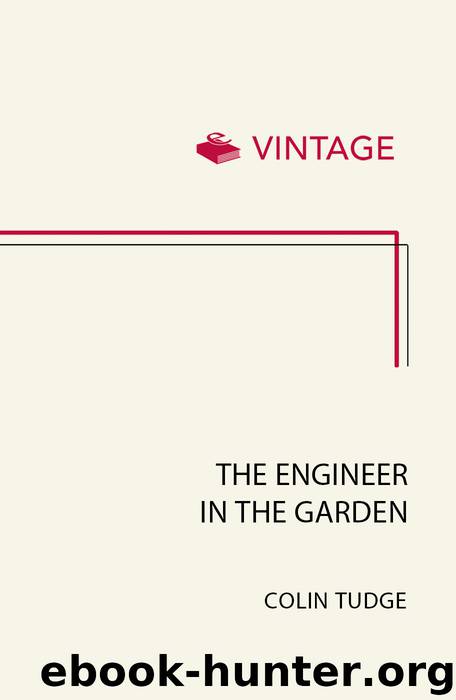Engineer In the Garden by Colin Tudge

Author:Colin Tudge
Language: eng
Format: epub
ISBN: 9781446466988
Publisher: Random House
‘EFFICIENCY’
‘Efficiency’ means in livestock farming precisely what it means in engineering: work (or energy) got out, divided by work (or energy) put in. What the farmer puts in can be measured in food energy, area of land, farm labour, or straight cash. What he gets out is measured in kilos of flesh, number of eggs, or litres of milk of appropriate quality.
Suppose, for example, a farmer is raising young pigs, lambs, or calves for beef, which we will henceforth refer to collectively as ‘offspring’. ‘Energy in’ equals the amount of feed given to these offspring by the time they reach slaughter, plus the amount given to each animal’s mother during the whole period of her pregnancy and lactation, plus a proportion of the amount given to her when she herself was a youngster, and in the intervals between pregnancies. After all, the only cash the farmer receives is from sale of the offspring, so the cost of keeping the mother has to be ascribed to those offspring.
We can increase efficiency by raising ‘energy out’, and/or reducing ‘energy in’. ‘Energy out’ in this context can in practice be gauged as ‘weight of the offspring at slaughter’; we can clearly increase this by (a) raising the weight of individual offspring at slaughter and (b) increasing the number of offspring.
We can reduce ‘energy in’ in three ways: (a) by ensuring that the offspring reach their slaughter weight in the minimum possible time; (b) by increasing the number of offspring produced in a given time, and (c) by reducing the amount of feed given to the mother. Pertinent to this last requirement is that small mothers eat less than big mothers.
It follows, then, that the ideal mother – whatever the species – would be tiny, and eat very little, but she would give birth to huge litters of offspring that grow enormously fast. A cow the size of a collie dog that gave birth to half a dozen calves that grew to half a tonne in about three months would be ideal – from the farmer’s point of view.
In practice, such a cow with such an output is probably a biological impossibility. But breeders and farmers, working together, none the less strive to move as closely as possible to the ideals of efficiency. Thus lambs in Britain are traditionally born on the uplands, where their mothers live permanently, and they are fattened for slaughter on the lush grass of the lowlands. The mothers are small, agile mountain sheep, such as Welsh Mountain ewes, while their fathers are big meaty rams, such as Border Leicesters or Suffolks. (In fact, traditional sheep breeding is far more complicated than this, involving cross-bred ewes and pure-bred rams. But this is the essence.) The lambs then grow faster than would a pure-bred Welsh Mountain lamb. If the ewe can be persuaded to have twins, then this is two for the price of one, a definite bonus. One development in sheep breeding is, therefore, to cross ewes such as Welsh
Download
This site does not store any files on its server. We only index and link to content provided by other sites. Please contact the content providers to delete copyright contents if any and email us, we'll remove relevant links or contents immediately.
Sapiens: A Brief History of Humankind by Yuval Noah Harari(14355)
Sapiens by Yuval Noah Harari(5357)
Pale Blue Dot by Carl Sagan(4990)
Homo Deus: A Brief History of Tomorrow by Yuval Noah Harari(4894)
Livewired by David Eagleman(3757)
Origin Story: A Big History of Everything by David Christian(3679)
Brief Answers to the Big Questions by Stephen Hawking(3416)
Inferior by Angela Saini(3308)
Origin Story by David Christian(3191)
Signature in the Cell: DNA and the Evidence for Intelligent Design by Stephen C. Meyer(3123)
The Gene: An Intimate History by Siddhartha Mukherjee(3087)
The Evolution of Beauty by Richard O. Prum(2978)
Aliens by Jim Al-Khalili(2822)
How The Mind Works by Steven Pinker(2811)
A Short History of Nearly Everything by Bryson Bill(2679)
Sex at Dawn: The Prehistoric Origins of Modern Sexuality by Ryan Christopher(2510)
From Bacteria to Bach and Back by Daniel C. Dennett(2475)
Endless Forms Most Beautiful by Sean B. Carroll(2466)
Who We Are and How We Got Here by David Reich(2424)
